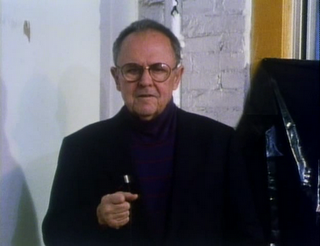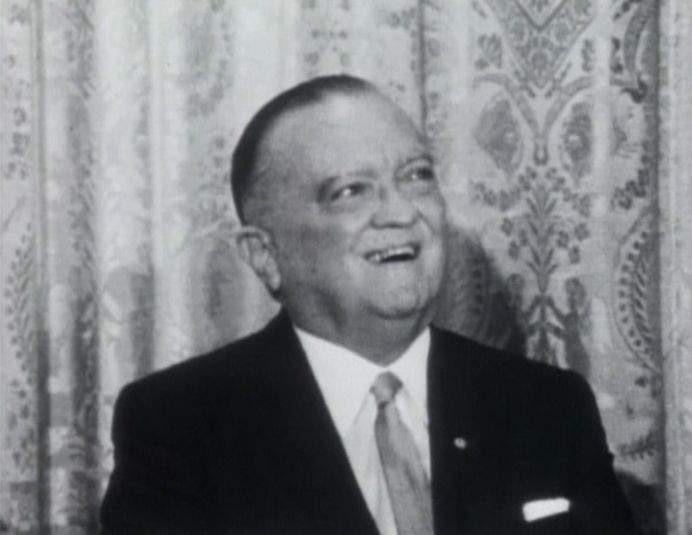From the Chicago Reader (May 18, 1990). — J.R.

MR. HOOVER AND I
**** (Masterpiece)
Directed and written by Emile de Antonio.

1. “Born Pennsylvania U.S.A., in intellectual surroundings and coal mines. Went to Harvard. Became, and still is, a Marxist, without party or leader. Started making films at age of 40 after having avoided films most of his life. Favorite film is L’age d’or.” Emile de Antonio’s self-description was written around 1977 for a poll organized by the Royal Film Archive of Belgium and eventually published in book form as The Most Important and Misappreciated American Films. Under the category of most important American films, de Antonio listed, in order, The Birth of a Nation, It’s a Gift, A Night at the Opera, The Cure, The Immigrant, One A.M., The Kid, Big Business, The Navigator, and Foolish Wives, and added the following comment:
“Most American films were and are like Fords. They are made on assembly lines. John Ford is not an artist any more than Jerry Ford is a statesman. Harry Cohn said it all and the Capras jumped.
“Comedy was spared all that. Irreverence was possible because the booboisie didn’t know it was being laughed at. Read more
Prior to the more recently held retrospectives in the U.S. devoted to Jean-Marie Straub and the late Danièle Huillet, the only previous such retrospective was held on November 2-14, 1982, at New York’s Public Theater. I curated this event, which also included a selection of films by others made by Jean-Marie and Danièle to show with their own. For the occasion, I also edited a 20-page, tabloid-sized catalogue, long out of print, and what follows are (1) the full program as planned and (2) my introduction. Regarding (1), I recall now that there was one last-minute addition, their recently completed short film En rachâchant (see second photograph below), as well as some last-minute omissions or substitutions that are noted in the text below. Regarding (2), I should emphasize that a lot has changed and developed over the past three decades, both in myself and in Straub-Huillet’s work –- in both cases, I’d like to think, for the better. It’s cheering to note that no less than three very substantial books have appeared devoted to their work, two in English — their Writings (as translated and edited by Sally Shafto, published in New York by Sequence Press), and an excellent critical collection edited by Ted Fendt for the Austrian Filmmuseum — and a mammoth collection in French, Internationale Straubienne, published jointly by Editions de l’Oeil and the Centre Pompidou (to accompany their own retrospective). Read more


